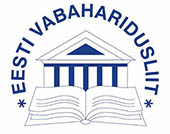Non-formal learning is a non-formal, open and flexible system of lifelong learning that offers people the widest possible range of learning close to home, supports their self-development, formation into active citizens and coping with everyday life and work, thus contributing to formation of civil society and maintaining the community’s cultural identity.
Non-formal adult education enables the development of the personality, its creativity, talents, initiative, and social responsibility, as well as the addition of knowledge, skills and abilities necessary in life. Learning takes place in the form of courses, study circles or other forms suitable for learners.
Simply put, non-formal adult education means the freedom to learn regardless of age, previous level of education, social affiliation, and other factors.
Lifelong learning
According to European educational terminology, lifelong learning refers to all learning activities undertaken throughout life, with the aim of improving one’s knowledge, skills and competences in accordance with the needs of oneself, citizenship, society (social cohesion) and/or the labor market, in formal, non-formal and informal form.
